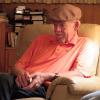Search the Community
Showing results for 'alcohol'.
Found 17,501 results
-
I had my surgery on dec 12 its my brother bday n i just turned 21 in oct n I really want to drink with him im also go to my first concert with him
-
Interesting, I was told 3 months for caffeine, 6 for alcohol. I for one will and can wait. I would not want to harm my sellf for anything on this planet. I have been obese for what feels like forever, 6 months alcohol free is nothing.
-
I don't remember the logic behind it. I just remember it was something about when your body is losing weight this rapidly the alcohol can cause neurological problems. Maybe that doesn't mean brain damage exactly but it's a heck of a lot easier to spell. I already gave up smoking to have my surgery, alcohol is a no brainer (lol) for me. It's just not worth it. I've heard a lot of people on this site talk about the alcohol setting them back on weight loss. To each his/her own i guess.
-
I was my mother's caregiver. She had Parkinson's Disease - the type that causes not only the involuntary movements of the upper body, but the type that also results in dementia, paranoia, etc. And she had severe Osteoporosis - so bad that her spine was crumbling with stress fractures and she couldn't wear her dentures because the bone in her lower jaw was just gone. Obviously, she could only walk very short distances, with the aid of a walker. When my mom got so bad she couldn't be left alone at all, I hired people to stay with her while I was at work, and for several nights each week. The rest of the time, I took care of her. I did her laundry, and my own. I cooked for my family, plus whatever my mother wanted to eat at that particular moment in time. I changed the litter box for her 2 cats, did all her shopping, and ran all her errands. My family and I did all her yard work, as well. I had a job, a husband, and 4 children, but no life of my own. I could not go on a vacation, or even a weekend trip. I thought I was going to have to miss my son's wedding rehearsal because it was on Friday night and I didn't have a sitter for my mom. I treasure the things I have that were my mother's. Every time I open her recipe box, I see all those little index cards covered with her handwriting. I couldn't have cared less about the money, but I would have fought for that recipe box. Now my mother-in-law lives with me. She is almost 87 and I take care of her, although she's in great shape for a woman her age (but almost deaf as a post). I know a little bit about caring for the elderly. It's not a lot of fun, I agree. But I can close my eyes and feel my mother's hand on my forehead when I was sick. She was a single mom - divorced from my alcoholic father when I was 5 years old. She raised us by herself. She was a teacher, but she worked two jobs most of my childhood, and she took in ironing to pay for my dancing lessons. My brother, who did absolutely nothing as far as caring for our mother, got the same inheritance as I did, by the way.
-
Hi Lap Band People, I am just trying to get into this site because I believe I will need some support and information on my journey. This seems to be a huge and active discussion group. I am also hoping to find a local support group in Milwaukee. I got my band on Thursday, May 12, 2011, from Dr. Thomas Chua, Wisconsin Bariatric Clinic, on Loomis, in Milwaukee. My insurance excluded coverage so I bit the bullet and paid for it myself. It certainly cut the paperwork and got me on the fast track. Now I'm healing. Still sipping vicodin, but starting to get free of it. I changed my dressings. I got a food processor and little 4 oz cups to freeze stuff in. I have a kitchen scale (for foods). A couple of weeks ago I was 313 lovable pounds. Now I am 297, sore, disoriented, but no less lovable, I hope. I was crabby this morning with a person who works for me, who is also obese. I told her I didn't appreciate her assumption that every new idea would be a bad thing. My goal is 200 pounds, but maybe it should be 175, as I am 6', 61 years old. I am divorced since a couple of years ago. I have 6 children, 3 of which are in their 20's. One is 9. I wanted to stick around awhile to see how they do. I have a good primary physician in Milwaukee. He has watched my weight increase despite stringent efforts to overcome the problem. He watches over my asthma, sleep apnea, pre-diabetes, gout, high blood pressure, heart risks, etc. He mentioned the lap band surgery. I resisted by trying one last-ditch effort with a psychiatrist, who gave me prozac for 6 months. At first it helped. I stopped drinking alcohol too. But eventually the appetite reduction effect subsided, and I quit prozac and psychiatric visits and started drinking again, which certainly doesn't help anything. I don't think of myself as an alcoholic, but there is no question that alcohol lowers my resistance to sensible eating. I eat too much. It's a vicious circle. But I hope I am done with all that. I am doing well with the lap band. I have no desire to start drinking again. I am looking forward to feeling well enough to exercise. So that's me. I introduced myself. I will appreciate any support and try to be supportive in turn.
-
My general rule of thumb these days is this: just because you can do something (according to your surgeon) doesn't mean you should. Though more often than not I think surgeons go way over the top alarmist about food, caffeine, alcohol, etc. For me, at one month post op I was not eating much carbs - only cooked veggies and some fruit. I am more than 2 months out now and I can tolerate protein-infused oatmeal okay but rice, Pasta and bread feel like bombs going off in my stomach. I avoid as much as possible.
-


After surgery... enjoying a few drinks with friends?
barbara465 replied to beversman's topic in LAP-BAND Surgery Forums
You definitely will feel the effects of the alcohol much sooner. Probably one drink will do it. I've had wine at parties and also an occasional margarita. I try to count the calories and definitely don't eat and drink. The no eating is probably why I feel it faster. Most of the time I just skip drinking because its not worth it to me. For someone young like yourself its OK. Just be aware that you will only need to drink a little to get the effect. :Banane33: -


How forthcoming are you to people when they ask what you did to lose weight?
slimcolagirl replied to catho72's topic in LAP-BAND Surgery Forums
haha I love this topic. I am telling NO ONE! :-) Only my husband knows and I'm glad to keep it that way. I am only 4 days post op but already have my story down. I'm just telling people that I'm back on a strict eating plan for a while, one that will allow me to get rid of my sugar/salt cravings and cleanse my body a bit. This does well for the liquid portion of my lapband diet. after I'm able to eat solids, my story will be that I've given up all alcohol for a while, as those are just liquid calories. I'm also telling them that I'm working with a weight loss coach and have been inspired by Oprah's weight regain show to get back on the wagon. I lost a lot of weight on a fast 2 years ago and gained some weight back, so people will understand while I'm being so hard core. People know that I'm really into cycling so I have that going for me. In fact I plan on doing Waves to Wine 150 mile bike tour this year. When they ask why I'm not eating or drinking a lot I'll just say that I'm on fire with my diet and dont want to end up diabetic like my mom. All these things are true so I have no problem keeping the band from them. As far as I'm concerned anything is better than telling them I have the band. -


Proof that Carbonation Can Damage a Band
MsButterKup23 replied to DeLarla's topic in LAP-BAND Surgery Forums
Carbonation doesn't bother me. The only time I can't drink a soda is while I am eating... I know I shouldn't be drinking while I'm eating especially soda!! I learned that lesson quite well when I had COLD soda coming out my nose when I got sick. Now I work hard not to drink ANYTHING while I'm eating.. I drink a gulp of soda here and there, I never chug it. I've always enjoyed Diet Sprite. I don't drink alcohol very often as I have a 1 year old and need to stay sober...lol -


Discussion: Why People Decide N Long Run to Have Gastric Bypass
juliegeraci replied to speck's topic in LAP-BAND Surgery Forums
Hi Speck, I have mixed feelings about it. I think the lapband is more difficult to lose weight. I've lost 30 lbs since June but compared to some who have lost 30+ lbs it makes me upset. Keep in mind that the doctor only wants 1-2 lbs a week which would put me right on target at 1 lb a week. Some of the time I think gastric bypass may have been better for me. The main reason is because if I'm going to have the band for life why not go all the way. I think the reason I didn't go that was was fear and lack of knowledge. I don't know too much about what you can eat. I heard that you can no longer have alcohol or sugar as it will hurt you. Don't know if that is true. In the long run I'm sure I will be happy with my band but like I said I can't imagine being 70 years old and never have had to replace it, therefore gastric bypass might be better. Good luck in your decision. -


Proof that Carbonation Can Damage a Band
giveyouthemoon replied to DeLarla's topic in LAP-BAND Surgery Forums
Uh...yeah! In fact post banding it takes less alcohol to "get you there". I drink bloody marys, martini's and an occasional margarita (too much sugar). I also drink lots of wine both white and red. Or some nice sipping whiskey on the rocks. PLENTY of choices for adult beverages!!! -


I'm Getting So Much Negative Feedback
TexasDianne replied to myownjourney's topic in PRE-Operation Weight Loss Surgery Q&A
Sweetie, I've been obese for over 20 years and I was one of those "you're taking the easy way out" people until earlier this year. I'll tell you one thing: YOU are the only person who can make this decision for you. What finally flicked the switch for me this year was realizing that I've fought my weight for over 20 years, repeatedly saying "I can do this myself...I don't need the easy way out!" And yet...here I am. 215 lbs overweight. So if I can do it myself...why haven't I? I am now able to look at this surgery as a tool and not as an easy way out. In fact, if you look at the facts and what we all have to do before and after surgery...this is NOT easy. This is a tool, not a quick fix or a guaranteed thing. We all have to work to get the weight off and change the way we're living our lives. Finally, I thought about my Dad...who was never able to beat his alcoholism and died at the young age of 67. I realized that if there had been a surgery that would have helped him to stop the drinking...I would have supported him. I would have wanted him to do it. Because I would have had so many more years with my Dad...and now he's gone. I'll never have that. You have to do what is right for you. Let your friends and family know that you've made your decision and that you're standing by yourself. Make it clear that you've heard their input...and now it's time for them to shut it. You can stand your ground and have healthy boundaries...you're going to need to flex those muscles in the months and years to come. As far as support is concerned, you have it all right here sweetie. You can do this. And we will support you and be here for you. -


After surgery... enjoying a few drinks with friends?
kym828 replied to beversman's topic in LAP-BAND Surgery Forums
I too go to happy hour every friday. i used to have to drink alot to feel a good buzz (5 or 6 mixed drinks) - probably from all the appetizers that come along with the drinks!! now i am a light wt and 1 maybe 2 mixed drinks will do me for the whole night. i know it slows the wt loss but i am one of those people that want to be out there partying with my friends and if it slows down my wt loss i am ok with that as long as the number keeps getting smaller. i plan on living with my band forever and although i am tweaking my lifestyle and making better choices i still want to live and be me - which includes partying. becareful in over doing it though... i have a terrible fear of throwing up from drinking too much with my band so that alone makes me not push it like i used to. btw - yes i am still on full liquid stage, but to me alcohol qualifies as a liquid and yes i did discuss this with my doc and nutrionist prior to banding. i definetely stay away from all beer and soda. -


Only 45 pounds in 5 months? ..anyone? Help please....
auntiem0502 replied to aclinton16's topic in POST-Operation Weight Loss Surgery Q&A
My Dr. said no alcohol ever. As unreasonable as it sounds, it's to avoid drinking your calories and my Nutrition Class talked about cross-addiction with alcohol. The strict no-no's were no alcohol, gum and soda. Not fun but it's for a reason. They want us having Protein first, then veggies, fruit and if there's room for carbs they are last. -


Only 45 pounds in 5 months? ..anyone? Help please....
JamieLogical replied to aclinton16's topic in POST-Operation Weight Loss Surgery Q&A
I don't really see why you can't have any alcohol ever, unless you know you are prone to addiction or something. I do agree that drinking it daily would be stupid, since it's empty calories. Soda has carbonation, which some believe can stretch the sleeve and I'm not willing to take that chance, so I avoid it 100% of the time. But I have had alcohol several times in the last 9 months. Maybe once a month or so once I was allowed. Just at social occasions and I'm very careful about it, because I have noticed I get drunk much faster post-sleeve, so absolutely NO driving the entire night, just to be on the safe side. I'm generally opposed to drinking my calories, but I don't see the harm in drinking in moderation on occasion. -
For me so far, the hardest part of this journey is not being able to drink. I did a 2 week pre op diet where alcohol was not allowed and am 3 weeks out now. So it's been almost 2 months since I last drank. I never considered myself a big drinker but could always handle a lot ( probably due to my weight). I'm 25 and have a lot of friends who still go to bars on weekends. I am starting to feel I'm losing touch with my social life because I'm not able to do those things yet. How long did everyone wait before trying a drink? Did you get sick? Sent from my SM-G530T using the BariatricPal App
-


Alcohol, parties, fun?
VSGAnn2014 replied to salmon77's topic in POST-Operation Weight Loss Surgery Q&A
I appreciate that you're looking to change your lifestyle. And that's a good thing. But your doctor's comments that alcoholic spirits are less fattening than wine are some of the weirdest I've ever heard. Yes, “savoring” a small amount of wine vs. guzzling a whole bottle is a good idea – fewer calories. And yes, good wine is a better choice than cheap wine -- but not for nutritional reasons. But the idea that the minimal number of carbs / sugars in a 5-ounce pour of chardonnay will make you fat again is simply not true. Skim milk has more sugars and carb grams than chardonnay. You can check these facts on any online nutritional database. Some surgeons’ nutritional education seems astonishingly lacking. P.S. Also check out recipes for watermelon martinis. They contain not only sugar found in watermelon juice, but sugar from ingredients like granulated (white) sugar and (in some recipes) sugary liqueurs. -
Hi Setagirl, I am feeling ya. I might actually be able to help. I had the same problem as you and it nearly drove me insane, but it helped me figure my body out. I discovered that my appetite is largely dependant on blood sugar swings. if it swinging around wildly, I am hungry and seek out sugar with vengence. A few years ago I put myself on a low GI diet and stopped craving sweets for the most part. If I vary from this I start craving again. Up until that point I was putting on weight again and it pretty much stopped. I also realised I had an alcoholics relationship with chocolate. It I eat even I tiny amount I start craving it again and I can't stop. It's worth a try. I also find I get really depressed on the high Protein diet they recommend. Like you I can't digest it; even after twelve years I still can't deal with chicken. The only think I can suggest it pureeing it. That seems to help me.
-
I have an alcoholic father. If there's anything I can do to offer support, please let me know.
-


My love for Starbucks!
OutsideMatchInside replied to Nikkip35's topic in PRE-Operation Weight Loss Surgery Q&A
Oh yeah Flat Whites are perfection. I haven't had one since surgery. I might splurge on one today There are lots of good options at Starbucks. I used to be addicted to white mochas, a triple venti white mocha was my drink of choice for years. It has like 900 calories though, a 1/2 day of calories, and I would get a coffee cake with it. I broke myself of that habit years ago. If you can carry your own sweetener and learn to love black coffee of very little cream, you really don't have to give up your coffee forever. You just have to be smart about it. I have given up basically everything with surgery, no alcohol and a laundry list of other things. I'm not giving up coffee. Plus after surgery your mind can be foggy and your concentration not what it used to be and coffee helps. -


Convincing partner to have WLS
Sosewsue61 replied to Leaky Ears's topic in PRE-Operation Weight Loss Surgery Q&A
Good luck to you all. If spouses do not want wls, then make sure as your emotions change from surgery that you assure them that you are still attracted to them and value their company. It might be tough from time to time, and they may feel insecure, jealous, angry at your changes and unknowingly or knowingly sabotage your progress. In my first marriage when I would diet and lose weight insecurity would cause him to bring home all kinds of goodies to tempt me or want me to eat out and get a 'garbage basket' appetizer, etc. Now he wasn't overweight, but an insecure alcoholic that figured if I lost weight I would leave (I left fat, because I couldn't take the alcoholism) -


Trying to get family to change - A little rant
No game replied to Supersweetums's topic in WLS Veteran's Forum
I totally get what your saying! my mom was on the phone with me yesterday telling me that it was cruel and unusually punishment not to get the kids a basket and please just run out and get one! o_0. My children were fine I let them go across to the store and buy two Cadbury eggs each. I am a addict I cannot have that in my house. My mom doesn't understand, even though she is a recovering alcoholic.. I'm sorry that happened to you and I know how hard it is to take something away from your kids when they already have it.. -
My surgeon said no alcohol until 6 mos. post-op. Internal healing takes quite a long time and drinking alcohol too soon could be an invitation to an ulcer. All forms or alcohol are also essentially sugars which could result in dumping as well. I enjoy a glass of wine before dinner but I didn't go there until I was 6 mos. post-op.
-
I just spoke with my bariatric coordinator. She has my PCP records and was concerned about my "6 months" of medically approved diet. Although I went to the doctor monthly (with minor exception) for the required 6 months, there was one month that I didn't make it within the 30 days since last appointmen. That was due to scheduling conflicts, etc. and I got in as soon as scheduling allowed. I guess we'll see what happens. I can go back 15 years documenting my weight and comorbidities, but I'm half way expecting them to deny and make me do it all over again. But that would have been my fault. I find it interesting that my insurance will pay 80% for 3 seperate treatments if you are a drug addict or alcoholic, but only 50% for obesity treatment (only once). Not only that, if you are an alcoholic/drug addict, your portion counts towards your out of pocket maximum for the year. For obesity treatment, it does not count towards your out of pocket maximum, but it sure does count towards your lifetime benefit! Just needed to rant for a moment.
-
Weight today 203! Total: 980 Fat:34 307 32% Carbs:52 191 20% Fiber:4 0 0% Protein:73 293 31% Alcohol:22 155 16% Activity - 30 mins on treadmill 3.1mph @ 2.5 incline - 200 cals recumbant bike - 10 mins - 50 cals Net calories 730












